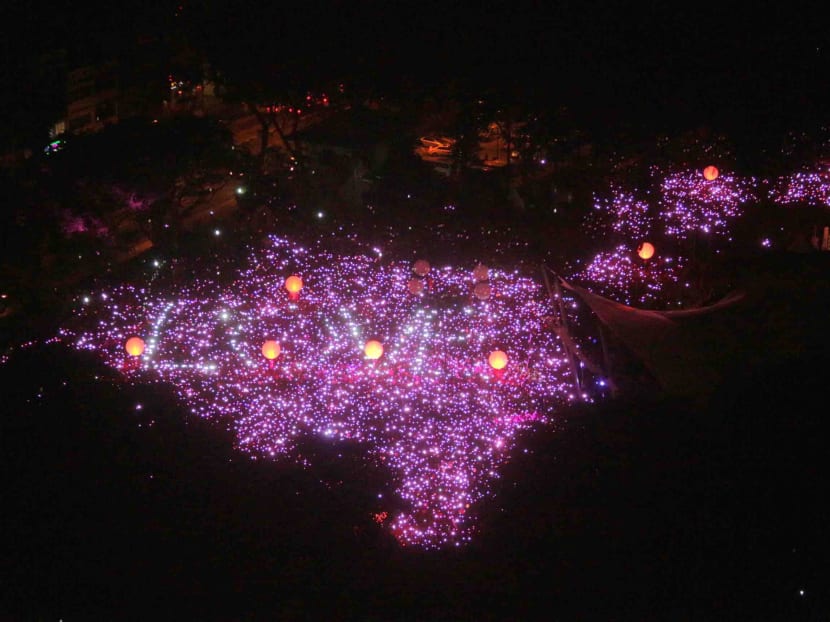Decision to retain Section 377A ‘carefully considered, balanced’
SINGAPORE — Raising the LGBT (lesbian, gay, bisexual and transgender) issue in its human-rights report to the United Nations (UN) for the first time, the Singapore Government said its decision to retain Section 377A of the Penal Code, which criminalises sex between men, was a “carefully considered and finely balanced decision”.

According to organisers, 28,000 people attended Pink Dot SG this year, an event calling for more focus into LGBT issues. TODAY file photo
SINGAPORE — Raising the LGBT (lesbian, gay, bisexual and transgender) issue in its human-rights report to the United Nations (UN) for the first time, the Singapore Government said its decision to retain Section 377A of the Penal Code, which criminalises sex between men, was a “carefully considered and finely balanced decision”.
In the report submitted to the UN in October and released by the Ministry of Foreign Affairs today (Dec 11), the Singapore Government noted that the LGBT issue is a sensitive one in its multi-religious society, where segments “continue to hold strong views against homosexuality for various reasons, including religious convictions and moral values”.
So, its approach is to seek to “accommodate the sensitivities of different communities so that there is room for all to exist harmoniously together”, the Government said, noting that the statute is not proactively enforced, and all citizens, regardless of their sexual orientation, are free to lead their lives and pursue their activities in their private space without fear or violence or personal insecurity.
It added: “We believe that each country should be allowed to deal with such sensitive issues in its own way, taking into account its evolving social and cultural context.”
The 23-page report submitted to the UN is Singapore’s second, under a Human Rights Council mechanism created in 2006 called Universal Periodic Review (UPR). The UPR reviews the human-rights situation in all 193 UN Member States once every four-and-a-half years. In the first cycle of the UPR in 2011, Singapore supported in-whole or in-part 84 of 112 recommendations. Singapore’s second UPR is scheduled for Jan 27 next year.
In its latest report, the Singapore Government said it is “fully committed” to the protection and promotion of the human rights of its citizens.
But “we take a practical, not an ideological, approach to the realisation of human rights”, it said.
“Human rights exist in specific cultural, social, economic and historical contexts. In every country, accommodation must be reached among the competing rights of the individuals who make up the nation and the interests of society as a whole,” it added.
It highlighted examples of steps it has taken to strengthen social protection for different segments of society, such as the lower-income, women, children, persons with disabilities and migrant workers. The report also described the ways the Government has sought to preserve social harmony, including the abolition of the mandatory death-penalty regime and the enactment of anti-harassment laws to tackle the growing concern.
The Protection from Harassment Act, which came into force in November last year, provides civil recourse to victims of harassment, ranging from sexual harassment, stalking, to bullying in schools or in cyberspace.
Meanwhile, a group of 10 civil society organisations here has also submitted to the UPR its recommendations to improve Singapore’s human-rights record in 11 areas.
The group calls itself Alliance of Like-Minded Civil Society Organisations in Singapore (ALMOS) and includes the Association of Women for Action and Research, Humanitarian Organization for Migrant Economics and The Online Citizen.
Among the things ALMOS calls for is the repeal of Section 377A, a review of the practice of deporting and blacklisting pregnant foreign domestic workers, and a review of all laws that potentially restrict freedom of expression.






